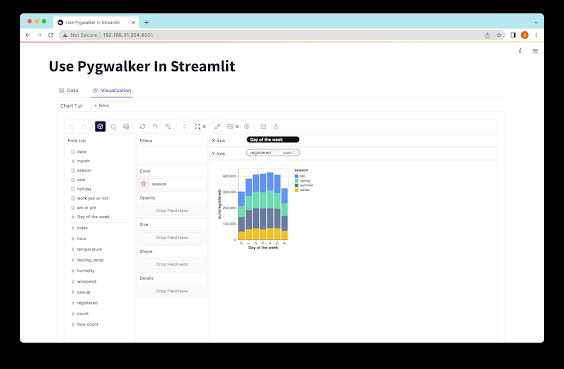Modin: The Open Source Python Library Speeding Up Pandas
Modin: The Open Source Python Library Speeding Up Pandas
With the proliferation of data in every industry, businesses have been searching for the fastest and most efficient way to process vast data sets. Fortunately, there has been a lot of progress made in recent years to provide a range of tools and technologies, both open source and paid, that can help with data analysis, visualization, and processing.
One of the most popular data analytics tools is Pandas. Despite its popularity, most users face challenges with data structures that are too large to fit into their memory. However, a new and innovative way to solve this problem lies in the form of an open-source Python library, Modin, with plenty of data visualization examples.
Modin is a new library built for large-scale data processing and offers a significant performance boost over Pandas. In this article, we will explore Modin - what it is, how it works, and its benefits.
What is Modin?
Modin is a Python library that processes Pandas DataFrames in a distributed and scalable manner, with blazing-fast speeds. The key difference between Modin and Pandas is that Modin uses distributed processing to split up data across multiple cores or machines, reducing computation time and memory usage.
Modin is an open source project that is designed to make it easy for users to get started using its features. It is built to integrate with the Pandas API, which makes it an excellent choice for those who are already familiar with Pandas. The library is also pre-optimized, providing performance enhancements without the need for additional code.
Modin Features
Modin provides a range of features for efficient data processing, including:
1. Distributed processing
Modin is optimized for distributed data processing, which allows it to process data across multiple nodes or machines simultaneously. This feature provides a significant performance boost, significantly reducing computation time.
2. Support for Pandas API
Modin supports the Pandas API, which means that users already familiar with Pandas can easily transition to Modin.
3. Ease of use
Modin is easy to use, with a simple installation and integration into Python codebases. It requires minimal changes to existing code, which means users can get started using it right away.
4. Memory optimization
Modin handles data using memory mapping, which ensures that only the necessary data is loaded into memory. This feature reduces memory usage and increases overall performance.
5. Advanced indexing and filtering
Modin supports advanced indexing and filtering, which can take advantage of the distributed processing, further improving performance.
Modin vs. Pandas
While Pandas is a popular library for data processing, Modin provides several key advantages over it. Below are some of the differences between Modin and Pandas.
1. Speed
Modin is significantly faster than Pandas in processing large data sets. Tests comparing both libraries have shown that Modin is up to four times faster than Pandas. This speed advantage is possible thanks to Modin's distributed processing feature, which allows it to split up data across multiple cores.
2. Memory usage
Modin's memory mapping feature reduces the amount of data held in memory, making it ideal for processing data sets larger than memory. Pandas, on the other hand, cannot handle larger datasets than the RAM that is available, leading to increased memory consumption if the data is too big.
3. Distributed processing
Modin is designed with distributed processing in mind and can scale to handle much larger data sets across multiple machines. Pandas, however, is limited to working on a single machine.
Use Cases for Modin
Modin is suitable for a wide range of data processing and analysis use cases, including:
1. Large datasets
Modin handles data sets larger than the memory capacity of a single machine, making it ideal for analyzing big data. It can distribute computation across multiple machines, removing the limitations of RAM memory
2. Augmented analytics
Modin supports augmented analytics, which empower data analysts to increase their insights and predictions based on automated processes and machine learning algorithms.
3. Data visualization
Modin can handle data visualization for large data sets. It is flexible enough to work with a wide range of data visualization tools, including Apache Superset BI, Power BI Alternatives, and the Open Source Tableau Alternative.
4. Bi Tools
Modin is compatible with many Business Intelligence tools, including Tableau Alternatives, Power BI Alternatives, and Apache Superset BI. As such, it is an excellent choice for businesses who are looking to improve their analytics capabilities.
Conclusion
In conclusion, Modin is an excellent alternative to Pandas when it comes to processing large data sets. It offers speed, scalability, and ease of use and can be used for a wide range of data processing, analysis, and visualization use cases. Its support for the Pandas API makes it simple for users who are already familiar with Pandas to get started, and the distributed processing features make it an ideal choice for analyzing data across multiple machines, and applying to complicated scenarios such as Augmented Analytics.
Additionally, Modin plays well with some of the best BI tools available today, including Apache Superset BI, Power BI Alternatives, and the Open Source Tableau Alternative. If you are looking to enhance your data analytics capabilities, Modin is definitely worth checking out.
Read more about Data Analysis

Comments
Post a Comment